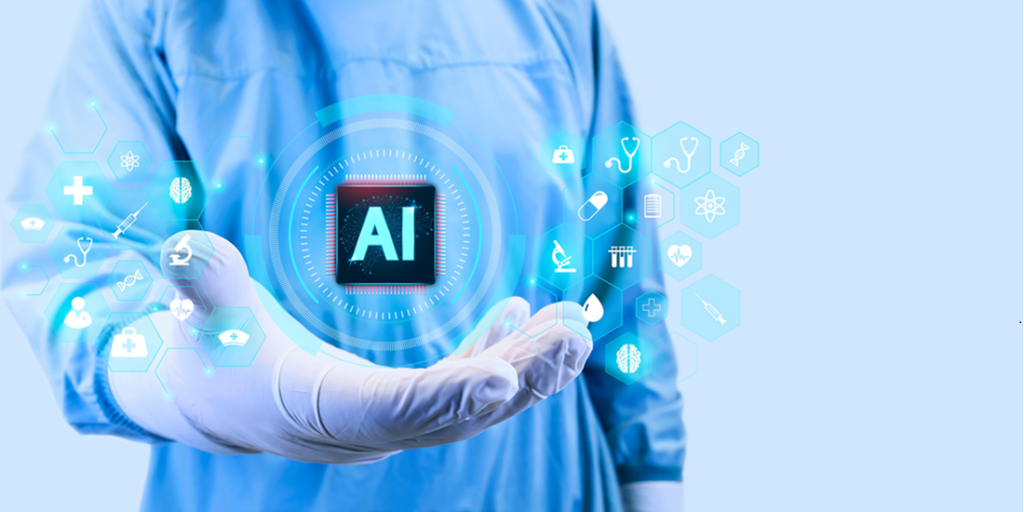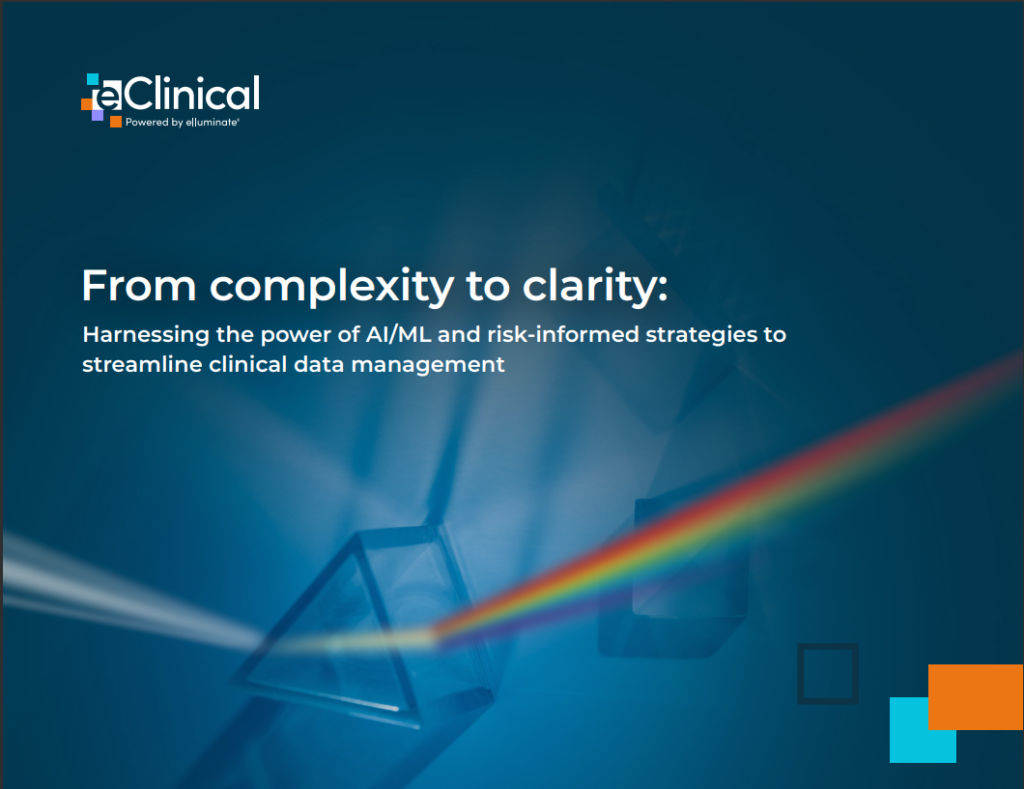
Daniel D. Gutierrez, Editor-in-Chief & Resident Data Scientist, insideAI News, is a practicing data scientist who’s been working with data long before the field came in vogue. He is especially excited about closely following the Generative AI revolution that’s taking place. As a technology journalist, he enjoys keeping a pulse on this fast-paced industry.
Artificial Intelligence (AI) is rapidly transforming industries across the globe, and healthcare is at the forefront of this revolution. The integration of AI into healthcare systems promises to enhance patient care, streamline clinical operations, and foster innovative research, marking a significant shift in how medical services are delivered and experienced.
Enhanced Diagnostics and Predictive Analytics
One of the most critical areas where AI is making a substantial impact is in diagnostics. AI algorithms, particularly those based on machine learning, can analyze complex medical data with unprecedented accuracy. For example, AI-driven tools can interpret medical imaging results, such as X-rays, MRIs, and CT scans, to detect abnormalities like tumors, fractures, or infections with a precision that often surpasses human capabilities. A study published in Nature [1] reported that an AI system developed by Google Health was able to diagnose breast cancer in mammograms with greater accuracy than expert radiologists.
Predictive analytics powered by AI is another game-changer in healthcare. By analyzing vast amounts of patient data, AI can identify patterns and predict the likelihood of diseases before they manifest. This capability is particularly valuable for managing chronic diseases such as diabetes, heart disease, and cancer. For instance, AI algorithms can analyze electronic health records (EHRs) to predict which patients are at higher risk of complications, allowing for early intervention and personalized treatment plans.
Personalized Medicine
AI is also revolutionizing the field of personalized medicine. Traditional medical treatments often adopt a one-size-fits-all approach, which may not be effective for all patients due to genetic, environmental, and lifestyle differences. AI helps overcome this limitation by analyzing genetic information, medical histories, and lifestyle data to tailor treatments to individual patients. This personalized approach can lead to more effective treatments with fewer side effects. For example, AI algorithms can predict how different patients will respond to specific drugs, enabling doctors to prescribe the most suitable medication and dosage for each individual.
Operational Efficiency and Cost Reduction
The integration of AI into healthcare operations is driving significant improvements in efficiency and cost reduction. Administrative tasks, such as scheduling appointments, billing, and managing patient records, can be automated using AI-powered systems. This automation reduces the burden on healthcare staff, allowing them to focus more on patient care.
AI can also optimize resource allocation in hospitals. For instance, predictive algorithms can forecast patient admissions, enabling hospitals to manage their staffing and bed capacity more effectively. This not only improves patient care but also reduces operational costs. A study by Accenture [2] estimated that AI applications could save the U.S. healthcare economy up to $150 billion annually by 2026.
Advancements in Medical Research
AI is accelerating the pace of medical research by enabling scientists to analyze large datasets quickly and accurately. AI algorithms can identify potential drug candidates by analyzing biological data and predicting how they will interact with human cells. This accelerates the drug discovery process, which traditionally takes years and costs billions of dollars.
Moreover, AI-driven tools can analyze scientific literature and clinical trial data to uncover new insights and correlations that might be missed by human researchers. For example, natural language processing (NLP) algorithms can scan thousands of research papers to identify emerging trends and potential breakthroughs in various medical fields.
Improving Patient Experience
AI is also enhancing the patient experience by providing personalized and efficient healthcare services. Virtual health assistants, powered by AI, can provide patients with medical advice, reminders for medication, and answers to common health-related questions. These assistants can also triage patients by assessing their symptoms and directing them to the appropriate level of care, reducing unnecessary visits to emergency rooms.
Telemedicine, which has gained prominence during the COVID-19 pandemic, is another area where AI is making a significant impact. AI-powered platforms can facilitate virtual consultations, monitor patients remotely, and analyze data from wearable devices to provide real-time health insights. This not only improves access to healthcare but also ensures continuous monitoring and timely interventions.
Ethical Considerations and Challenges
While the benefits of AI in healthcare are immense, it is essential to address the ethical considerations and challenges associated with its implementation. Data privacy and security are paramount, as AI systems often rely on sensitive patient information. Ensuring that this data is protected and used ethically is crucial to maintaining patient trust.
Moreover, there is a need for transparency and accountability in AI-driven healthcare decisions. Understanding how AI algorithms arrive at their conclusions is essential for gaining the confidence of healthcare professionals and patients alike. Additionally, addressing potential biases in AI algorithms is critical to ensuring fair and equitable healthcare outcomes for all individuals, regardless of their background.
Conclusion
The integration of AI into the healthcare industry is driving a paradigm shift that promises to enhance diagnostics, personalize treatment, improve operational efficiency, accelerate medical research, and enhance the patient experience. As AI continues to evolve, it is essential to address the associated ethical considerations and challenges to ensure that the benefits are realized equitably and sustainably. The future of healthcare is undoubtedly intertwined with the advancements in AI, making it a vital tool in the pursuit of better health outcomes for all.
[1] McKinney, S. M., et al. (2020). International evaluation of an AI system for breast cancer screening. Nature, 577(7788), 89-94. https://doi.org/10.1038/s41586-019-1799-6
[2] Accenture. (2017). Artificial Intelligence: Healthcare’s New Nervous System. Retrieved from https://www.accenture.com/us-en/insight-artificial-intelligence-healthcare
Sign up for the free insideAI News newsletter.
Join us on Twitter: https://twitter.com/InsideBigData1
Join us on LinkedIn: https://www.linkedin.com/company/insidebigdata/
Join us on Facebook: https://www.facebook.com/insideBIGDATANOW





Speak Your Mind